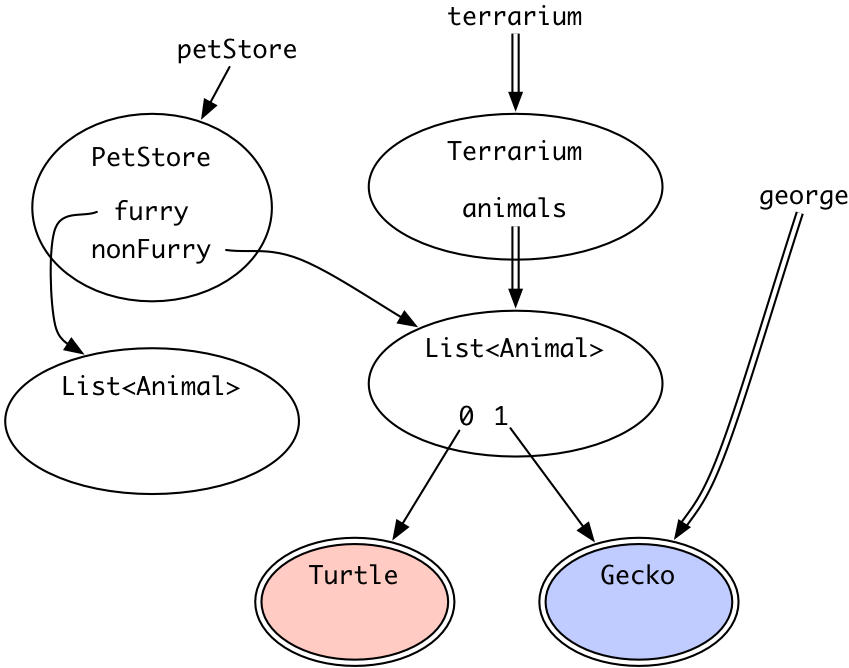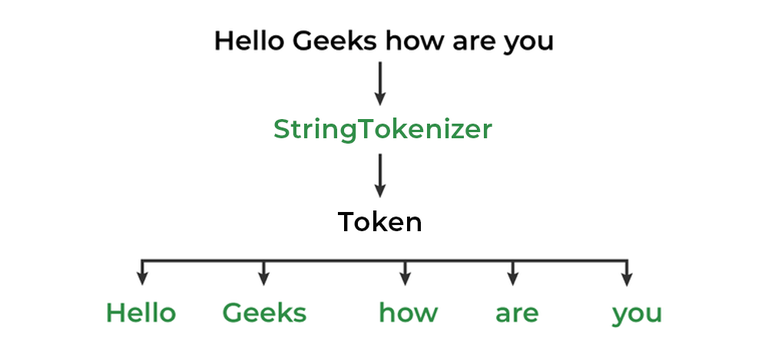Why Are Strings Immutable in Java? Trick Reasons and Advantages Clarified
Why Are Strings Immutable in Java? Trick Reasons and Advantages Clarified
Blog Article
Discovering the Advantages of Unalterable Strings in Modern Shows Paradigms
In the realm of modern-day programs paradigms, the idea of immutable strings stands as a foundation of durable software application advancement. The advantages they provide go beyond plain convenience; they basically modify the means data is managed within applications. By embracing unalterable strings, programmers can ensure boosted data honesty, enhanced thread security, streamlined debugging procedures, raised security actions, and reliable performance optimization. These advantages function as a testimony to the extensive effect that welcoming immutability can carry the dependability and efficiency of software application systems.
Boosted Information Integrity

By avoiding the alteration of string things, immutability removes the danger of unintentional changes to the data they hold. This not just enhances the safety and security of the information but additionally improves the dependability of the code that counts on these strings.
Immutability likewise sustains safer multithreading environments, as simultaneous access to unalterable strings does not present the threat of information corruption with synchronised alterations. This residential or commercial property simplifies the procedure of managing strings in identical shows circumstances.
Basically, immutability functions as a protective shield around the data stored within strings, enhancing their honesty by ensuring that once defined, their values continue to be unmodified throughout the program's implementation.

Enhanced String Safety And Security
Immutable strings enhance the thread security of programs by ensuring that when a string item is created, its value can not be customized. This building gets rid of the risk of concurrent threads attempting to change the same string simultaneously, which can cause data corruption or inconsistent states in the program - Why are strings immutable in Java?. In a multi-threaded environment, where several threads gain access to and adjust data at the same time, the immutability of strings offers a degree of security by guaranteeing that the data continues to be unchanged throughout its lifecycle
Streamlined Debugging Processes
Provided the improved thread security promoted by unalterable strings, a substantial advantage occurs in the world of streamlined debugging processes. Immutable strings, once developed, can not be modified, making it easier to trace the flow of data and recognize the source of pests in a program. This immutability ensures that strings continue to be consistent throughout the execution of the program, decreasing the likelihood of unforeseen adjustments that might bring about mistakes.
When debugging with mutable strings, developers frequently come across issues where a string's worth is modified accidentally, making it testing to identify the origin reason of an insect. Nevertheless, with unalterable strings, the data continues to be unchanged, permitting designers to concentrate on assessing the real reasoning of the code instead of tracking down where and when a string was modified inaccurately.
Furthermore, unalterable strings simplify the debugging process by enabling simpler recreation of pests. Because immutable strings do not alter state, designers can recreate and examine insects better, bring about quicker identification and resolution of issues within the codebase. This streamlined debugging workflow eventually adds to greater software quality and improved total development efficiency.

Enhanced Protection Steps
Enhancing information protection and fortifying system integrity, the use of unalterable strings in software applications adds substantially to increased security measures. Unalterable strings likewise play an important role in stopping typical safety vulnerabilities such as barrier overflows and SQL shot strikes, as efforts to control string information at runtime are inherently limited.
Additionally, the immutability of strings enhances the predictability of program actions, making it you could check here simpler to validate inputs and avoid unforeseen adjustments that can jeopardize safety. This predictability streamlines the process of auditing and validating code, enabling designers to determine potential safety technicalities much more successfully. Overall, including immutable strings into software application growth practices not only click here to find out more boosts the effectiveness and reliability of applications but additionally reinforces their durability against protection dangers.
Reliable Efficiency Optimization
When dealing with mutable strings, procedures like concatenation or substring creation commonly result in the production of new string items, leading to memory overhead and enhanced handling time. By allowing strings to stay constant and stable, immutable strings assist in better memory administration and caching chances, eventually increasing the general performance of the software application.
Unalterable strings additionally play a vital function in multithreaded environments by promoting thread safety. Why are strings immutable in Java?. Considering that unalterable strings can not be changed when created, they can be shared across strings without the threat of unforeseen changes, reducing the requirement for synchronization systems and improving concurrency. In addition, unalterable strings streamline debugging processes as programmers can rely on that a string's value will remain consistent throughout the program's implementation, eliminating prospective mistakes brought on by mutable state modifications. In conclusion, using unalterable strings not just improves protection but additionally significantly adds to the effective performance optimization of contemporary software program systems.
Verdict
In final thought, the benefits of utilizing immutable strings in modern programming standards can not be overstated. Enhanced information honesty, improved thread security, simplified debugging processes, enhanced protection procedures, and reliable performance optimization all add to the overall performance of shows jobs. By including unalterable strings into shows techniques, developers can gain from an extra reliable and robust codebase.
Immutability, a key feature of strings in programs languages such as Java and Python, ensures that as soon as a string item is developed, it can not be altered or changed.Immutable strings boost the string safety of programs by making certain that as soon as a string things is developed, its This Site worth can not be customized. Immutable strings likewise play an important function in protecting against typical safety susceptabilities such as buffer overflows and SQL injection assaults, as attempts to adjust string data at runtime are inherently limited.
By permitting strings to remain unchangeable and consistent, immutable strings help with better memory management and caching chances, inevitably boosting the overall efficiency of the software application.
Immutable strings simplify debugging processes as programmers can trust that a string's worth will certainly stay constant throughout the program's implementation, eliminating potential mistakes created by mutable state modifications.
Report this page